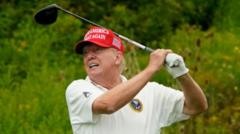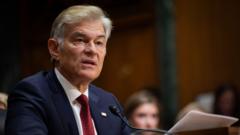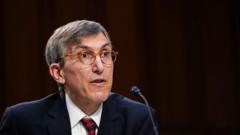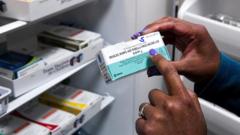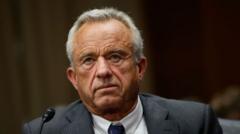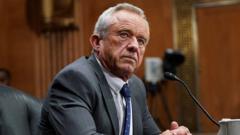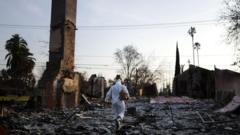Robert F. Kennedy Jr. cancels extensive funding for mRNA vaccine projects, claiming safety concerns and shifting focus to alternative vaccine platforms.
RFK Jr Halts $500M mRNA Vaccine Initiative Amid Controversy

RFK Jr Halts $500M mRNA Vaccine Initiative Amid Controversy
U.S. Health Secretary's Decision Sparks Debate Over Vaccine Safety and Efficacy
The U.S. Department of Health and Human Services (HHS) has announced it will terminate $500 million (£376 million) in funding dedicated to mRNA vaccine development aimed at combating viruses such as flu and Covid-19. This decision affects 22 initiatives led by major pharmaceutical companies, including Pfizer and Moderna, that were working on vaccines for avian influenza and other respiratory viruses. This bold move was reaffirmed by Health Secretary Robert F. Kennedy Jr., a known vaccine skeptic, who cited concerns that "mRNA technology poses more risks than benefits for these respiratory viruses."
Critics, including numerous doctors and health experts, have openly challenged Kennedy's persistent skepticism regarding vaccine safety and efficacy, as well as his overall health policy stance. Peter Lurie, a former official at the U.S. Food and Drug Administration (FDA), remarked that this development signals the U.S. "turning its back on one of the most promising tools to fight the next pandemic." He emphasized how the rapid development of mRNA vaccines had played a crucial role in mitigating the Covid-19 crisis and saving millions of lives.
Kennedy defended his controversial decision by asserting that his team had thoroughly scrutinized the scientific evidence and listened to expert opinions. "The data show these vaccines fail to protect effectively against upper respiratory infections like COVID and flu," he insisted. Instead, he declared a shift in funding toward "safer, broader vaccine platforms that remain effective even as viruses mutate." Furthermore, Kennedy claimed that mRNA vaccines could promote new mutations, potentially prolonging pandemics as viruses adapt to evade vaccine-induced immunity.
Health specialists have responded appropriately, asserting that virus mutations occur irrespective of vaccination. Dr. Paul Offit, the director at the Vaccine Education Center at Children’s Hospital of Philadelphia, observed that while the flu virus mutates annually, the measles virus has remained stable despite widespread vaccination with mRNA vaccines. He asserted that mRNA vaccines are "remarkably safe" and essential for minimizing severe disease from viruses such as Covid-19.
In light of these developments, HHS affirmed that the Biomedical Advanced Research and Development Authority (BARDA), which manages the vaccine projects, will pivot towards "platforms with stronger safety records and transparent clinical and manufacturing data practices." Classical vaccines generally utilize inactivated viruses to stimulate immune responses, while mRNA vaccines educate cells to produce proteins that could trigger such responses.
Dr. Offit, an innovator of the rotavirus vaccine, further warned that the cancellation of funding may jeopardize the U.S.'s readiness for potential pandemic threats in the future. The shorter development cycle of mRNA vaccines was deemed critical for a timely response to the Covid-19 pandemic.
Since taking office, Kennedy has initiated significant changes in vaccine development and regulatory practices, including the abrupt dismissal of all 17 members from a crucial advisory committee on vaccinations, replacing them with individuals who have questioned the safety and effectiveness of vaccines. This shift also saw the removal of the Covid vaccine from the Centers for Disease Control and Prevention's (CDC) recommended immunization schedule for healthy children and pregnant women.









